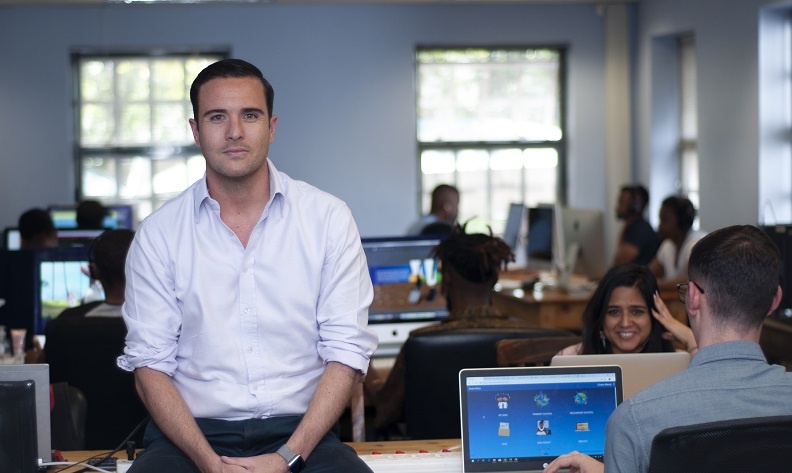Johannesburg-based ed-tech startup IDEA Digital Education is deploying interactive and data-driven educational content to thousands of students on three continents.
Founded in 2014 by Dr Corrin Varady, IDEA Digital Education creates learning content for students and teachers in STEM subjects across grades R-12. Its low cost, outcome-driven, core curriculum solution is focused on English second-language students through self-paced and self-directed content.
Varady knows a thing or two about education, having established the World Youth Education Trust for students in East Africa in 2005. The trust still works today to reintegrate child soldiers back into their communities via counselling education, but after realising the limitations of private schools in terms of both cost and scalability, Varady moved on to launch IDEA.
He told Disrupt Africa the startup’s key differentiator is that it is completely interactive, and data-driven, with every piece of content driving feedback and proficiency data.
“Our Unique Identification (UID) tracking structure allows us to see what we could do better such that we can amend the content and inform a student or teacher of where they need to focus their remediation or extension,” said Varady.
“We currently record all user content usage from pixel coordinates, right and wrong answers, and click intervals to be able to inform truly individualised and adaptive learning through a machine learning framework.”
IDEA works both online and offline, having enabled a “live” environment in rural and remote schools while providing the same IDEA content and analytical solution.
“We are not a platform, we are not assessments, and we are not just content, but all of the above,” Varady said, adding that IDEA is striving to be a global education solution.
So far, so good. The startup now has more than 100 team members across eight countries, and has developed a suite of products with over 1,800 curriculum topics, 38,000 animations, videos and interactive activities, and more than 11,000 assessments. In South Africa, together with the national Department of Basic Education and the Western Cape Government, it has launched curriculum-aligned digital content and training programmes for government school teachers and students, and it has also launched programmes in South Sudan, Tanzania, Philippines, Malaysia and Indonesia.
“We have completed our first two versions of our solution. We have sizeable government school and low-income private school traction and our product is being used by over 189,000 students on a weekly basis and 1,040,000 subscribers within the school term,” said Varady.
The IDEA platform has a demonstrable impact on learning outcomes. Its 2018 results showed a 20-30 per cent increase in numeracy and literacy at Grade 1-3 compared to students who either undertook another programme or no programme at all, and an average of 35 per cent increase in scientific literacy in Grade 8 students.
“We have increased our assessment rigour by partnering with local education services NGOs for independent testing, which we expect to see at the end of 2019 in the final year government systemics,” Varady said.
IDEA runs on Software as a Service (SaaS) and Content as a Service (CaaS) models on a 12-36 month subscription basis, and has been seed funded by private family trusts both in Australia and South Africa. Expansion is the name of the game between now and 2023.
“We will be opening operations teams alongside our existing Johannesburg and Nairobi offices, in the Middle East and Southeast Asia. Our product plan is to take our existing, deployed content and transform the home language accessibility of it for multiple markets,” said Varady.
“Also in 2020, we will personalise learning through an AI framework, meaning every student’s learning journey is unique. From a student success point of view, we have already started globalising our delivery and success having run our team out of South Africa and servicing East Africa.”
In all, Varady feels IDEA has proven its product in terms of user satisfaction and educational outcomes, and now the only way is up.
“We are working to grow into other markets and develop an advanced technology platform that allows us to turn our interactive content into globally accessible, personalised learning software,” he said. “Our challenges are making our platform more scalable and personal so that it can reach more individual students in more markets without such a traditional, operations-heavy footprint.”


